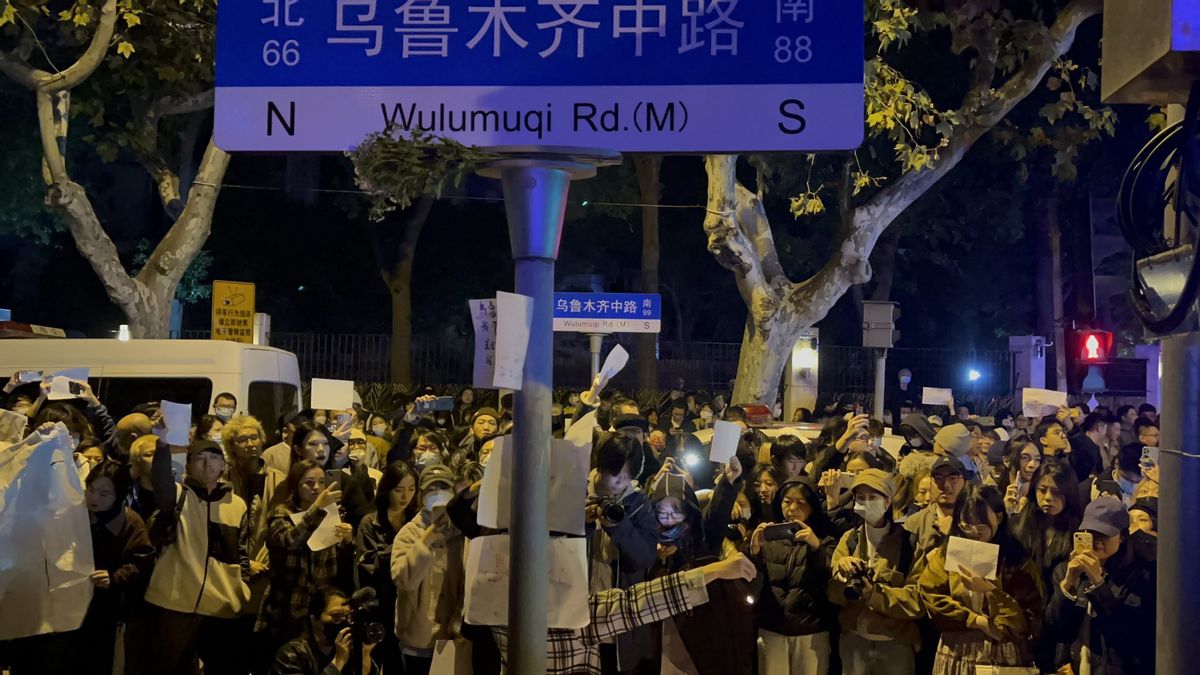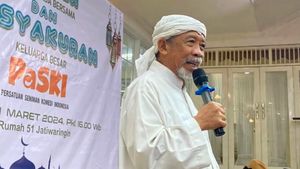JAKARTA - Security forces in China tightened security on Monday, with police conducting patrols at protest sites rejecting COVID-19 restrictions on weekends in Shanghai and Beijing and other cities in China.
From streets in several Chinese cities to dozens of university campuses, protesters have shown unprecedented civil disobedience since President Xi Jinping took office about a decade ago.
"What we object to is the limitation of people's rights in the name of virus prevention, restrictions on individual freedom and people's livelihoods," said Jason Sun, a student in Shanghai.
There were no signs of a new protest on Monday in Beijing or Shanghai, but dozens of police were at the scene where a weekend demonstration took place.
However, Shanghai roads where protesters gathered were blocked with blue metal barriers to prevent crowds from gathering. Police with high visibility vests patrolled in pairs, while police cars and motorbikes were passing by.
Shops and cafes in the area were asked to close, a staff member told Reuters one of them.
Asked about the widespread anger over China's zero-COVID policy, Foreign Ministry spokesman Zhao Lijian told reporters, "What you mentioned doesn't reflect what really happened.
"We believe that with the leadership of the Chinese Communist Party and cooperation and support of the Chinese people, our fight against COVID-19 will be successful," he said.
State media did not mention the protests, but urged citizens in the title of the plan to stick to COVID rules.
Meanwhile, many analysts say China is unlikely to reopen before March or April, and requires an effective vaccination campaign before that.
The reaction to COVID-19 restrictions is a setback for China's efforts to eradicate the virus.
China's zero-COVID policy has seen the official death toll of around thousands, compared to more than one million in the United States, but has to sacrifice millions of people for a long time at home, causing widespread disruption and damage to the country with the world's second-largest economy.
Getting rid of it would mean canceling the policies President Xi is fighting for. It will also risk burdening the health system, causing widespread illness and death in countries with hundreds of millions of elderly and low levels of immunity against COVID-19, experts say.
The English, Chinese, Japanese, Arabic, and French versions are automatically generated by the AI. So there may still be inaccuracies in translating, please always see Indonesian as our main language. (system supported by DigitalSiber.id)













